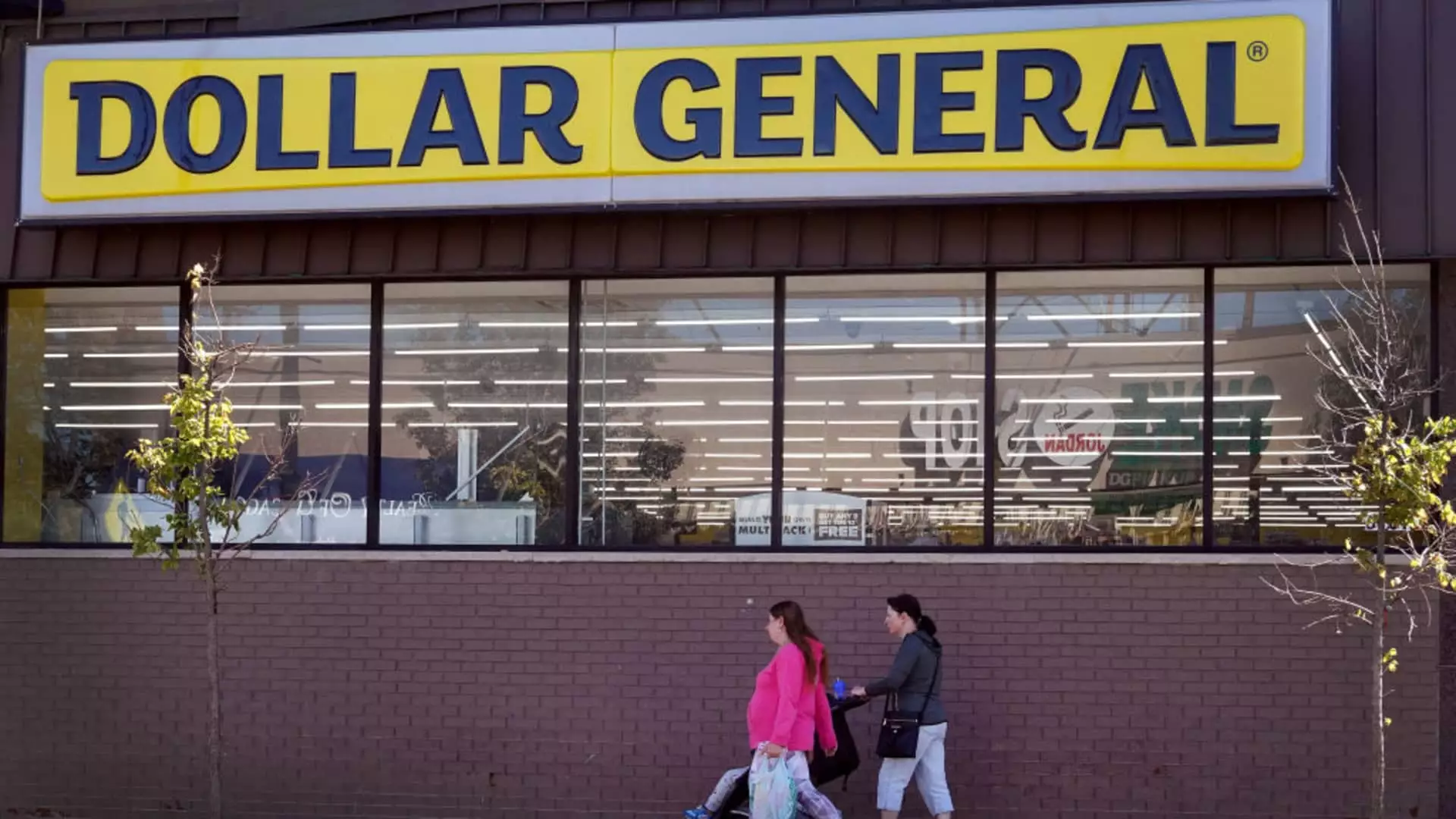As the midday trading session unfolds, a whirlwind of developments is reshaping the landscape of the stock market. Companies are rising and falling dramatically, driven by various factors including earnings reports, guidance revisions, and broader economic conditions.
In a shocking downturn, Dollar General witnessed its shares plummet nearly 30%, primarily due to a drastic reduction in its sales and profit projections for the year. The company’s CEO, Todd Vasos, attributed this steep decline in sales to the financial constraints felt by its core customers—a sentiment echoing across many consumer-focused businesses. The shift in consumer spending habits not only impacted Dollar General but also sent a ripple effect through the market, with competitors like Dollar Tree experiencing a drop of 9%. This situation serves as a stark reminder of how interconnected these retailers are in the current economic climate.
In stark contrast, Affirm, a rising player in the ‘buy now, pay later’ sector, saw its stock soar by 34%. The company announced an optimistic revenue forecast for its upcoming fiscal first quarter, projecting earnings between $640 million and $670 million—exceeding analyst expectations. This enthusiasm reflects a growing acceptance of alternative payment solutions among consumers, signaling robust demand in this financial sector.
Best Buy’s shares surged 15% as the electronics retailer announced an upward revision of its earnings outlook for the fiscal year. With anticipated adjusted earnings now projected at between $6.10 and $6.35 per share, the company demonstrated resilience and adaptability in a fluctuating marketplace. Strong performances in the fiscal second quarter have positioned Best Buy positively, highlighting the importance of consumer electronics during the current economic landscape shaped by technological advancements.
The cloud-based infrastructure company Nutanix also made headlines, with a 20% jump in its stock price following a rewarding earnings report. The reported adjusted earnings of 27 cents per share on $548 million in revenue far surpassed analyst forecasts. As businesses increasingly pivot to cloud solutions, Nutanix appears well-poised for sustained growth, a trend indicative of broader shifts towards digitalization across various industries.
Not every company experienced favorable outcomes. Okta, a leader in secure identity services, saw its shares fall about 16% after failing to meet expectations in billings, resulting in a double downgrade by Bank of America. This serves as a crucial lesson on the unpredictable nature of market reactions to earnings reports. Similarly, Birkenstock’s shares declined by 16% as it reaffirmed its full-year revenue guidance despite falling short on fiscal earnings expectations, highlighting the challenges that brands face when financial projections do not align with market pressures.
Other companies such as Pure Storage and Nvidia saw their stocks decrease; Pure Storage’s shares fell 13% after issuing below-expectation operating income guidance. Conversely, Nvidia, despite reporting strong fiscal results, saw a 3% decline due to underwhelming revenue forecasts for the third quarter, illustrating the heightened expectations that accompany high-profile companies within tech.
Conversely, Veeva Systems saw its shares increase nearly 9% following a strong fiscal second-quarter performance, outperforming analysts’ predictions. Crowdstrike also experienced a surge of 5% post earnings release, despite a downward revision to its full-year outlook. This reflects the ongoing volatility and unpredictability present in financial markets, particularly as companies must navigate external challenges, such as global outages and shifting cybersecurity concerns.
Victoria’s Secret saw a slight dip of more than 1% after raising its full-year outlook but still projecting a decline in net sales, indicating a cautious approach to consumer sentiment. Meanwhile, HP Inc. experienced modest 4% gains, with revenue surpassing expectations, albeit with mixed earnings results. This duality reveals the complexity of consumer behaviors and broader economic indicators that define the retail sector.
As midday trading continues, it is evident that investor sentiment reflects a combination of individual company narratives and overarching economic themes. Companies adjusting to changing consumer behaviors, particularly in challenging economic conditions, showcase the resilience and dynamism required to thrive in today’s financial markets.

